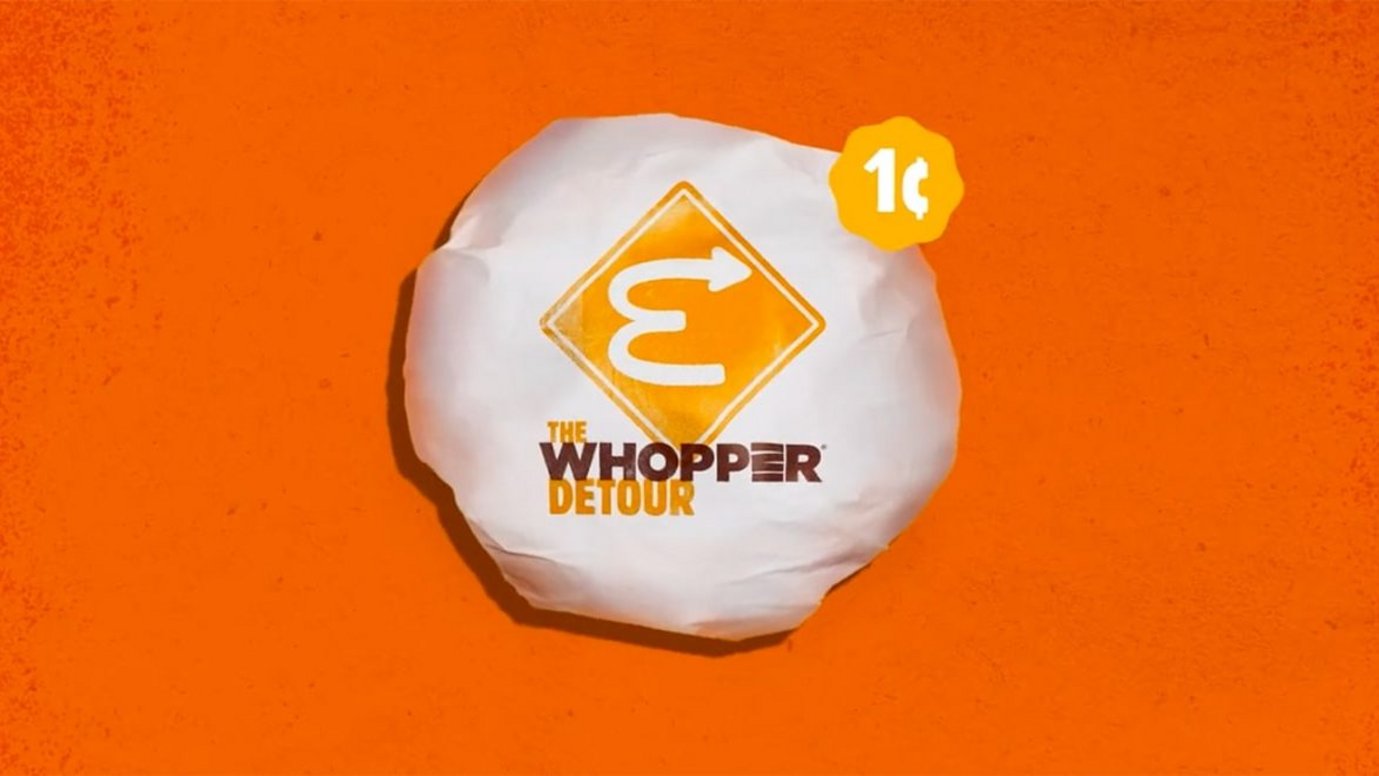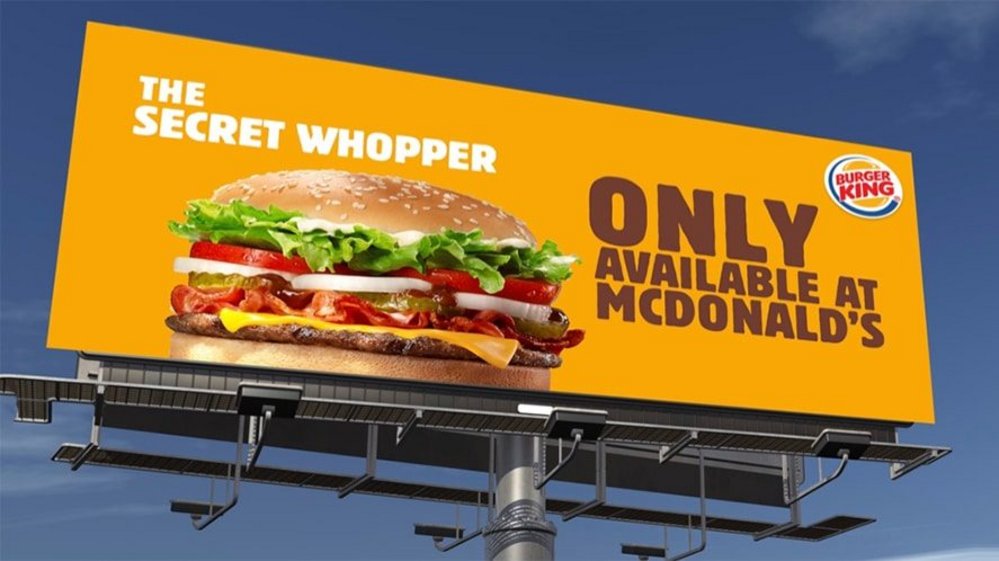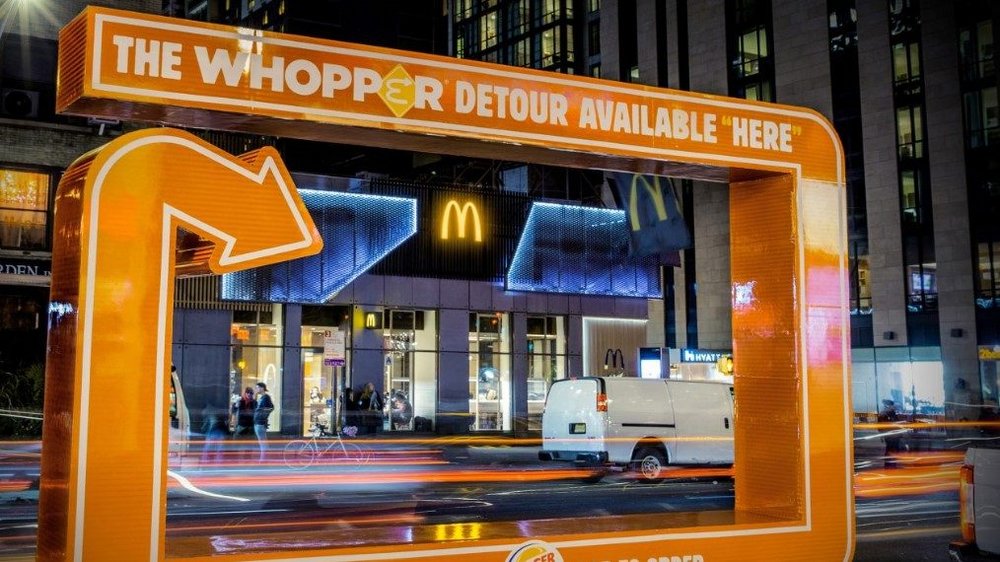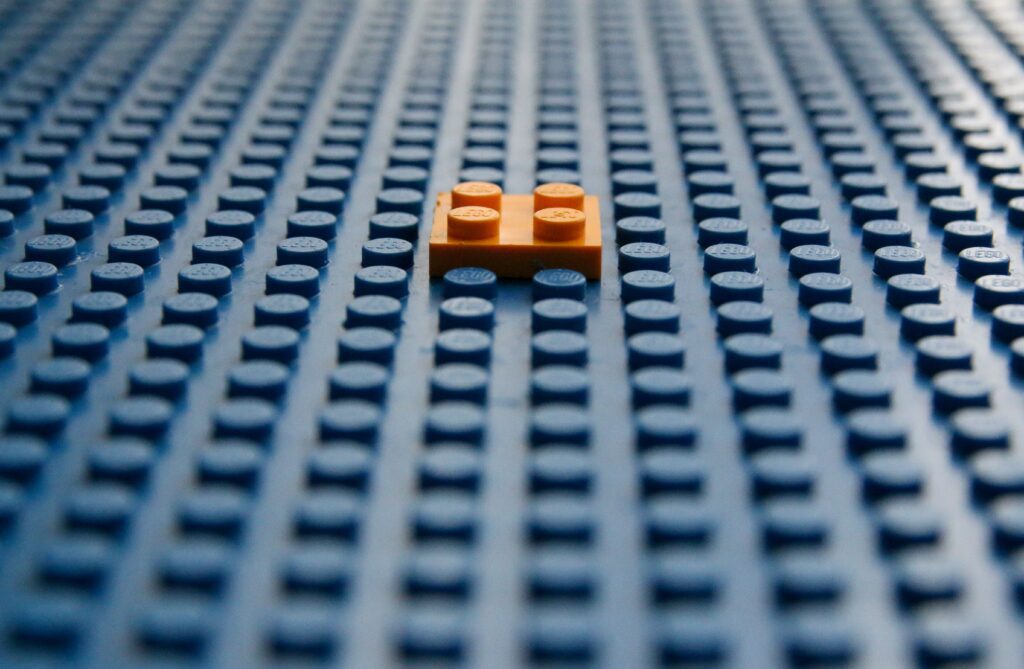Burger King’s Whopper Detour

Mobile geofencing directed users away from McDonald’s and promoted Burger King’s newly updated app’s order-ahead capabilities.
There were several issues with Burger King. Its mobile presence needed an overhaul to keep up with the growing popularity of mobile ordering, which was expected to be a $38 billion market by 2020 in the US.
Lagging Mobile App Service
Burger King has been modernizing its menu items, takeaway containers, and restaurants. However, the mobile app has been neglected. Burger King was lagging behind the rest of the quick-service industry. In the United States, for instance, Starbucks’ mobile app generated a lot of money and valuable user information. When it came to these details, Burger King fell short.
Primary Goal
The BK app’s download numbers needed to go up,
Origin Of Idea

At Cannes, Gabriel Schmitt, ECD of FCB New York, met Fernando Machado, who was at the time the CMO of Burger King worldwide. They discussed several topics, but one notion, in particular, tickled Machado. It was founded on the observation that McDonald’s has more than twice as many locations in the United States than Burger King does, with over 14,000 compared to 7,000 for Burger King.
Customers in the United States often have to go farther to get a flame-grilled Whopper, and the majority of sales are made through the drive-thru.
In light of this, the concept of offering a discount to customers who go “the extra mile” to Burger King was born.
Gabriel contacted BK’s former CMO Fernando Machado again to discuss an idea using the navigation software Waze. The idea of a relationship with Waze seemed like a fun experiment for BK, which had never dabbled with geolocation previously. Furthermore, they had not done any drive-thru concepts even though this was BK’s most crucial channel.
Yet Fernando felt it lacked intensity. It needed to create a huge noise. Gabriel then returned and eventually arrived at the core concept for Whopper Detour.

The Promo
The concept was summed up by FCB in a single question: “What if you could buy a Whopper that could only be ordered at McDonald’s?” The fact that Burger King has 7,000 restaurants and McDonald’s has 14,000 was the key piece of information that led to the conclusion. The plan was to rebrand McDonald’s restaurants as BK’s establishments.
Burger King’s app offered a tempting incentive for prospective consumers (essentially McDonald’s customers) to download and utilise the app by promising them a one-cent Whopper if they did so. The catch? Customers have to use the app while physically located in or within 600 feet of a McDonald’s restaurant to place an order.
It took around 14 months to get the campaign off the ground. The primary reason behind this was the length of time required to geofence all of McDonald’s 14,000+ locations.

Outcomes
- The crew spent the day of the ad launch travelling throughout New York City and Brooklyn with a cutout billboard. At 8 o’clock, they wrapped up, and the whole development and production crew celebrated in a pub. The BK team was ecstatic with the success of the campaign. The software was displaying 500,000 downloads in a single day, which they thought was not right. Then they realised that nothing was wrong and they were onto something big.
- According to Cision and ABMC, the campaign generated $40 million in earned media, which equates to 3.5 billion impressions. All without spending much on advertising.
- One tweet, “BRB going to McDonald’s,” was published by FCB around an hour before the campaign went live. That one tweet generated 818% more Twitter mentions and 65,000 likes in a few hours.
- During the offer, more than 1.5 million users in the United States downloaded the BK app, an increase of 37.5% in only nine days. Additionally, the promotion was redeemed by more than half a million people, which is more than 40 times the amount redeemed in any prior digital coupon promotion. They saw a 4.5 million increase in downloads in the months after the campaign.
- After debuting at positions 686 and 464, respectively, on the Apple App Store and Google Play Store, the BK app soared to the top, surpassing social media giants like Facebook, Twitter, Instagram, and YouTube. For more than 10 days, the BK app dominated the Food and Drink charts on both iOS and Android.
- For Burger King, this was a breakthrough concept. The entire value of mobile app sales surged by three times during the campaign, even though Whopper sandwiches were only selling for a cent. And even after the campaign ended, they continued to make twice as much money via our mobile app as Burger King did before the promotion began. By themselves, Whopper Detour customers will drive an additional $15 million in yearly revenue to the BK mobile app.
Reference
https://www.contagious.com/news-and-views/burger-king-whopper-detour-strategy-cannes-interview
https://www.marketingdive.com/news/burger-king-whopper-detour-mobile-marketer-awards/566224/



